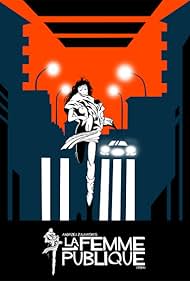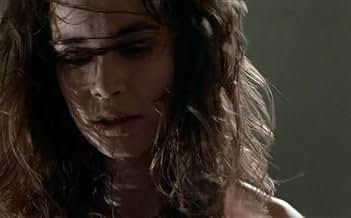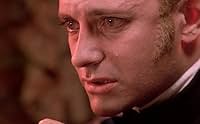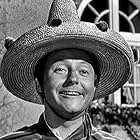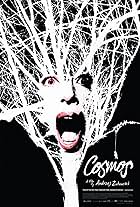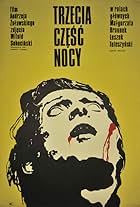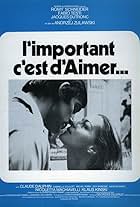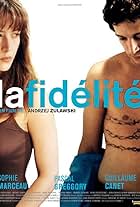An inexperienced young actress is invited to play a role in a film based on Dostoyevsky's 'The Possessed'. The film director, a Czech immigrant in Paris, takes over her life, and in a short ... Read allAn inexperienced young actress is invited to play a role in a film based on Dostoyevsky's 'The Possessed'. The film director, a Czech immigrant in Paris, takes over her life, and in a short time she is unable to draw the line between acting and reality. She winds up playing a rea... Read allAn inexperienced young actress is invited to play a role in a film based on Dostoyevsky's 'The Possessed'. The film director, a Czech immigrant in Paris, takes over her life, and in a short time she is unable to draw the line between acting and reality. She winds up playing a real-life role posing as the dead wife of another Czech immigrant, who is manipulated by the ... Read all
- Awards
- 2 wins & 4 nominations
- Ethel
- (as Valerie Kaprisky)
- L'habilleuse
- (as Nathalie Becue)
- Mgr Shlapas
- (as Rene Beriard)
Storyline
Did you know
- TriviaValérie Kaprisky took dance lessons to perform her two nude dance scenes. She practiced to the music of David Bowie and two of his songs were played on set during the scenes. But obtaining the rights to use Bowie's music would have eclipsed the film's entire budget, so composer Alain Wisniak had to create new music to go with the footage.
- Alternate versionsU.S. based video label Mondo Video selected this film as its debut release. Their 2008 DVD is the first to have English subtitles. Prior to this release, the film was only available officially in select European countries.
- ConnectionsReferenced in Druuna: Morbus Gravis (2001)
- SoundtracksGrande messe en Ut' Mineur KV 427
Written by Wolfgang Amadeus Mozart (as W.A. Mozart)
Zulawski's method is one of shattering the clean boundaries of roles and framed narrative, all the things that keep us at arm's length from ever really feeling the soul of a character in our skin, doing so with impunity, so that we are free to swim and see into the inner world of urges and emotional thought, pure mindstream. What you would normally have to infer is up there on the screen. The skin of consciousness has been turned inside out, reversed: the pedantic details of all this having linear sense and plot are now beyond our reach, the actual battered soul is visible.
This is nothing to scoff at, in fact it is the most advanced dimension in film. Reversed innerseeing. Ecstatically hovering out of self and story. It is what Lynch only accomplished with Inland Empire, acknowledging the Polish influence.
Possession is sublime, the pure convulsing horror of a soul being torn apart. It was out of this world, everyone from Cronenberg to Lynch sat down and took notice. The story goes that he was so hellbent on that film to coax the raw emotion he wanted out of Isabelle Adjani, he did some pretty horrible things to her. Here is the followup to that: an obsessive, half-mad filmmaker (ex-pat working in France) torments his young starlet on the artistic journey to perfection. Their film is an adaptation of Dostoyevski's The Possessed (wink). She is eager, talented, but the murky depths of his vision escape her.
Everything else is madness, flailing, fluid self, the exposing of raw nerves in the frantic experience of the mindstream.
This seems murkier than Possession, because it lacks the actual monster and clean symmetry of doubles. It's in the same vein. Forces in these people are so painful and overwhelming, the characters have splintered into several more selves, and each splintered self is maniacally pushing against the limits of his narrative - some of them inside the play, others in separate subplots. Two ex-pats, frustrated in Paris with the hypocrisy of art and religion - one of the murders a cardinal, both are present in the scene, both photographed in a film-within. Two actresses, both mistresses of the same two guys.
So he is angrier than Tarkovsky. Has none of Malick's piousness. Ruiz and Wojciech Has are playful, he is bitter and mad. He sees ugliness, sin, impurity. And he has several rough spots, of symmetry and politicking, both shouted.
But he worships the same awesome god: not the cardinals' god, but the recognition of something that goes beyond the small limits of reason and self, and tries to awaken the vastness of that in his own narratives of fluid and battered egos.
And he has trusted collaborators on the journey. Valerie Kaprisky is divine, ecstatic dancer to the mystery of shedding skin.
Sacha Vierny, that mage of cinematic light; Resnais, Greenaway, Ruiz, Zulawski, he has enriched all four with his eye.
And if all of that seems gibberish to you, you should know of the rich tradition of Buddhist gurus called mahasiddhas, who used madness and gibberish as a tool for wisdom. A similar notion of desired irrationality is encountered from Zen to Dada.
The thinking mind is a meddlesome monkey. Confound, confound, confound.
Something to meditate upon.
- chaos-rampant
- Sep 25, 2012
- Permalink
- How long is The Public Woman?Powered by Alexa
Details
- Release date
- Country of origin
- Language
- Also known as
- Die öffentliche Frau
- Production company
- See more company credits at IMDbPro
Contribute to this page

